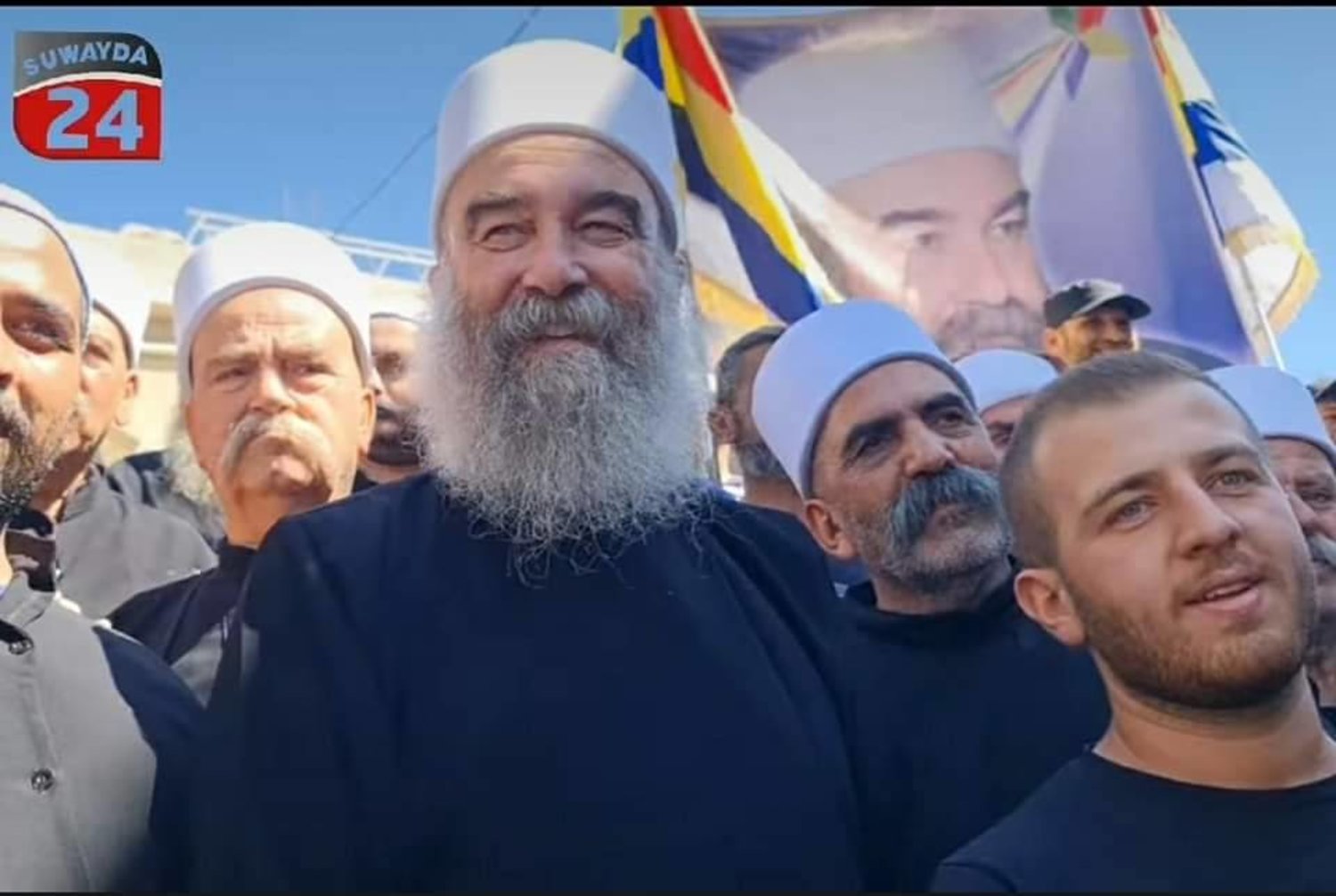While US and European officials continue to express their interest in the ongoing protests in Suweida governorate, Damascus maintains its official stance of ignoring these demonstrations, focusing instead on countering pro-government activists affiliated with Iran. This situation raises several important questions regarding international support for the Suweida movement and Damascus’ potential strategies to address it.
The implications of international communications in support of the Suweida movement are multifaceted. Firstly, such communications signify international recognition of the leadership of Sheikh al-Aqel Hikmat al-Hijri in the governorate. This recognition makes it challenging for Damascus to remove him from the protest arena, creating a delicate and potentially embarrassing situation for the regime. Furthermore, these communications bolster the movement’s legitimacy on the global stage, potentially increasing its resilience and attracting more supporters.
In response to these developments, Damascus appears to have relied on its traditional intelligence methods to undermine Hijri’s spiritual authority. This includes attempts to tarnish his image, diminish his prestige, and question his national positions through campaigns orchestrated by loyal activists on social media. However, these efforts have been met with significant resistance from various segments of the population, including secularists, leftists, and tribal representatives who stand in solidarity with Hijri.
After American Representatives: Sheikh al-Hijri Receives Call From U.S. State Department Official
Despite its attempts to weaken the movement from within, Damascus seems hesitant to resort to the use of force or engage in negotiations with the protesters at this stage. Instead, the regime continues to disregard the Suweida movement, which raises questions about its long-term strategy and how it plans to address the situation going forward.
In summary, the international support for the Suweida movement complicates the matter for Damascus, as it solidifies the movement’s leadership and legitimacy. The regime’s efforts to undermine Hijri’s authority have faced resistance, and it remains uncertain how Damascus intends to ultimately deal with this ongoing protest movement.
Ignoring Suweida
The version of President al-Assad’s interview with China Central Television (CCTV) broadcast on Syrian state television notably omitted any reference to the protests in Suweida. Even when asked about the challenging moments he experienced during the war, Assad emphasized the crucial support he received from the people, sidestepping any mention of the ongoing protests.
While acknowledging that the current situation in Syria is undeniably challenging due to the ongoing humanitarian crisis, Assad placed blame on Western countries for exacerbating the suffering of the Syrian population. He reiterated that the war is not yet over and highlighted two significant dangers facing the region: the influence of Western modern liberalism originating from the United States and the threat of extremism. Assad identified “external intervention” as the primary obstacle confronting Syria. When asked about plans or strategies for rebuilding Syria and addressing its difficulties, Assad avoided providing specific details. He emphasized that Syria faces both internal challenges related to the war and blockade and external challenges linked to the global economic situation.
According to Assad, the “fundamental strategy” to address this situation involves transitioning away from reliance on the US dollar and exploring alternative currencies, with the Chinese yuan being the foremost choice.
Dense communication
Two days after receiving a call from US Deputy Assistant Secretary of State, Ethan Goldrich, in which he expressed support for the freedom of expression and peaceful protests in Suweida, British envoy Anne Snow engaged in a conversation with Sheikh Hijri. The US embassy officially announced this interaction on its X platform page, where it called for a just and united Syria and emphasized the need for a political solution in line with Security Council Resolution 2254.
This sequence of events was preceded by three separate calls that Hijri received from members of the US Congress in recent days. Republican Representative French Hill, Democratic Representative Brendan Boyle, and Republican Representative Joe Wilson all expressed their support for the peaceful protests in Suweida.
Catherine Langzeben, a member of the European Parliament and head of the Foreign Affairs Committee, responsible for the Syrian issue within the Green Party bloc in the German parliament, also made contact with Sheikh Hijri. She communicated her interest in the developments in Suweida and her support for the peaceful protests.
Meanwhile, the protests in Suweida have now entered their forty-second day, demonstrating a growing momentum and enhanced organization and coordination. The protesters remain resolute in their demand for Assad’s departure and the implementation of UN Resolution 2254. Despite frequent accusations of disloyalty and treason propagated by government supporters on social media, Sheikh Hijri has gained notoriety as a prominent figure in the Suweida movement. His refusal to have the people of Suweida join government forces and engage in battles against fellow Syrians has led to him being described as a “rabbi.”
In contrast, journalist Rafiq Lutf, with close ties to Tehran, issued a warning on his Facebook account, labeling the people of Suweida as “instigators of discord” and suggesting that they are financial agents manipulating the poor and needy to participate in the movement. He also alleged that they harbour aspirations of establishing a “flimsy and artificial Zionist statelet” with fabricated privileges.
This article was translated and edited by The Syrian Observer. The Syrian Observer has not verified the content of this story. Responsibility for the information and views set out in this article lies entirely with the author.


